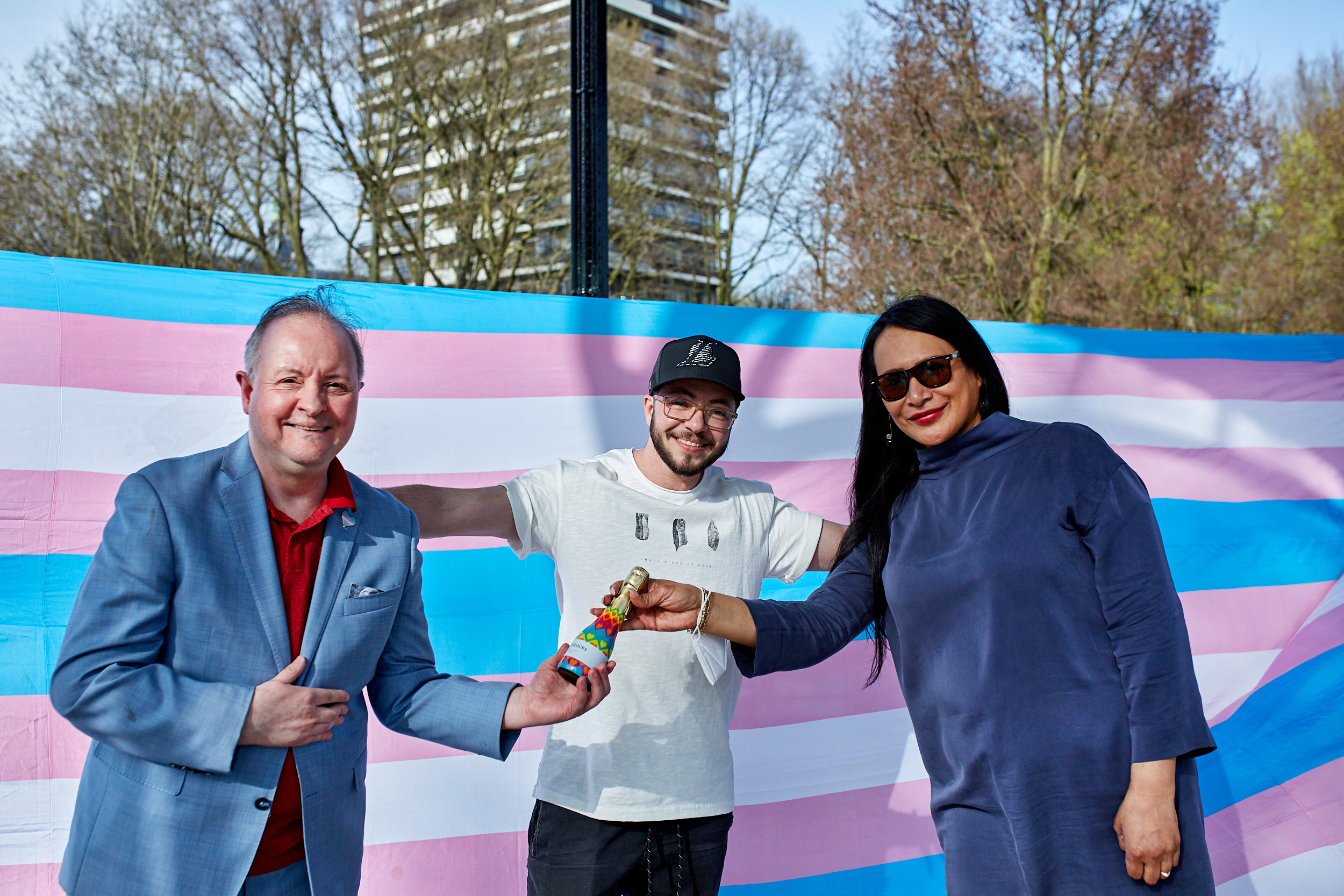

Each of these moments in history provides visibility for LGBTQ stories and people and further advances inclusion and belonging.
#Trans visibility day 2021 full#
Barriers to health care for transgender and gender non-conforming individuals may include societal stigma, discrimination and access to affirming care.Īnother year full of bright spots and challenges, 2021 offered many celebrations for LGBTQ communities - from a record number of LGBTQ government officials including 11 members of Congress, to the confirmation of Pete Buttigieg, the first openly gay Cabinet member to be confirmed by the Senate. Observed on March 31st, this day celebrates the resilience of transgender and gender nonconforming communities while raising awareness of the work that is still yet to be complete. A celebration founded in 2009 by transgender activist Rachel Crandall-Crocker, TDoV is one of the first observances centering transgender people that does not exclusively focus on mourning victims of anti-transgender violence. March wraps up with the 13th annual International Transgender Day of Visibility (TDoV). The opportunity to share a patient’s whole-self is imperative for creating a trusting relationship between patients and providers. Collecting and utilizing SOGI data can be incredibly useful in identifying specific needs and health disparities experienced by the LGBTQ community. Hospitals and health systems across the country have already begun efforts to improve LGBTQ health by collecting SOGI (sexual orientation and gender identity) data in health-related surveys and health records, appropriately inquiring and being supportive of patient sexual orientation and gender identity and providing training to clinical and administrative team members. This year’s LGBTQ Health Awareness Week theme, “Live Out Loud,” encourages each of us to speak openly about the barriers surrounding LGBTQ health, providing a means to discuss challenging issues and work toward ending stigma through providing equitable and inclusive healthcare. Beyond Washington, check out the Transgender District, the Okra Project, and the Trans Justice Funding Project.Each year, health professionals and community organizers team up for National LGBTQ Health Awareness Week, held March 21-25). Learn about their work! For example, here in Washington check out the WA Black Trans Taskforce, U.T.O.P.I.A. The UN LGBTI Core Group launched a video campaign on social media where trans persons from different parts of the world, with different life experiences and who speak different languages, join together to speak the language of equality, empowerment and pride. There are numerous trans-led organizations doing powerful work across the country. Today, March 31, is Transgender Day of Visibility Let’s listen to trans persons around the world who tell us why visibility is important.

This article shares information about current legislative attacks on transgender young people. GLAAD shares info about Transgender Day of Visibility and media representation of trans people here.

The Queer Resource Center provides peer-to-peer support email or find them on Instagram and Facebook Want to learn more? Schedule a meeting with them here or email to find another time to connect. Litav Langley, Western’s LGBTQ+ Director, is here to be a support and resource for students, faculty, and staff. Team club for trans and ally students provides online connection and meets via Discord go here for info about connecting with T.A.G. Looking for support and connection through Western? Regardless of how visible you are to anyone else, it’s worth a reminder that this world and this community hold abundant love for you. Visibility can feel powerful, dangerous, impossible, essential. Like everyone, trans people are worthy of love simply for being ourselves, exactly as we are. Your existence, your care for yourself and one another, your very being, are powerful and wonderful. Let’s recognize multidimensional trans brilliance! Amidst myriad systemic efforts to regulate gender, trans people are finding and nurturing ourselves, building loving, just alternatives to the present. The full humanity of trans people deserves respect, including from systems that shape social outcomes. Unacceptably, trans people – especially BIPOC and disabled trans people – are often labeled confused, immoral, or unreal. As some states around the country increase attacks on trans youth, let’s be clear: trans identities are real, valid, and deserve respect.


 0 kommentar(er)
0 kommentar(er)
